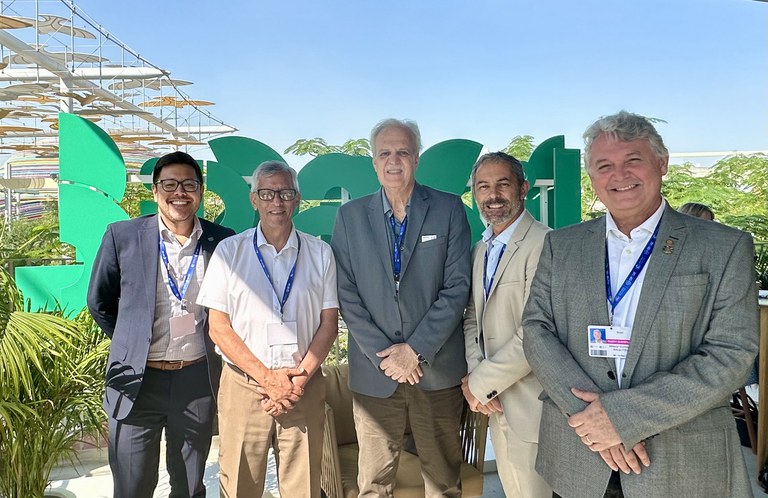The Ministry of Science, Technology and Innovation (MCTI), through the Department of Climate and Sustainability and in collaboration with Rede Clima (Brazilian Research Network on Global Environmental Change), is evaluating the establishment of scientific cooperation with the Geophysical Union of the United States (AGU). The matter was the subject of a meeting held this Wednesday (06), at the United Nations Climate Change Conference (COP28) in Dubai, between the directors of the scientific body and members of the Brazilian delegation.
Founded in 1919 by the US National Research Council and independent since 1972, the AGU is a North American association of scientific geophysical societies, covering fields such as meteorology and hydrology. It currently brings together a global community of scholars. “It’s kind of an SBPC [Sociedade para o Progresso da Ciência] Geophysics,” compares MCTI Director, Osvaldo Moraes.
According to him, the meeting made it possible to identify synergies for the establishment of scientific cooperation projects between Brazil and the United States. “We explored possibilities for collaboration. How can AGU facilitate dialogue between MCTI and the North American government to develop projects together? How can we use our tools to do new science and answer fundamental questions, such as Critical points Moraes explained.
One topic that could be the subject of joint work is the inclusion of social and political risks in models that predict climate change scenarios and the impacts of political decisions in these scenarios. “How can climate change scenarios that today mainly deal with issues from the physical sciences include issues from the social and political sciences,” the director explained.
According to AGU Vice President for Global Partnerships, Mark Shimamoto, the meeting allowed the identification of scientific needs, challenges and opportunities for Brazil and the Amazon region. “Brazil is one country where we have a strong membership and an active community of scientists working to solve global challenges, including those in the Amazon region,” he said.
Shimamoto stressed the need to enhance knowledge about points of no return (Critical points) and its effects on the Amazon region. “In addition to thinking about other specific social factors and other social information that can inform risk and reduce risk in the Amazon and other communities,” he said.
The meeting was attended by Redi Clima Coordinator Moasir Araujo, a researcher at the Institute of Advanced Studies at the University of São Paulo (USP), Redi Clima member Carlos Nobre, and Senior Advisor at the Arabian Gulf University Chris Guillot. .

“Wannabe internet buff. Future teen idol. Hardcore zombie guru. Gamer. Avid creator. Entrepreneur. Bacon ninja.”

